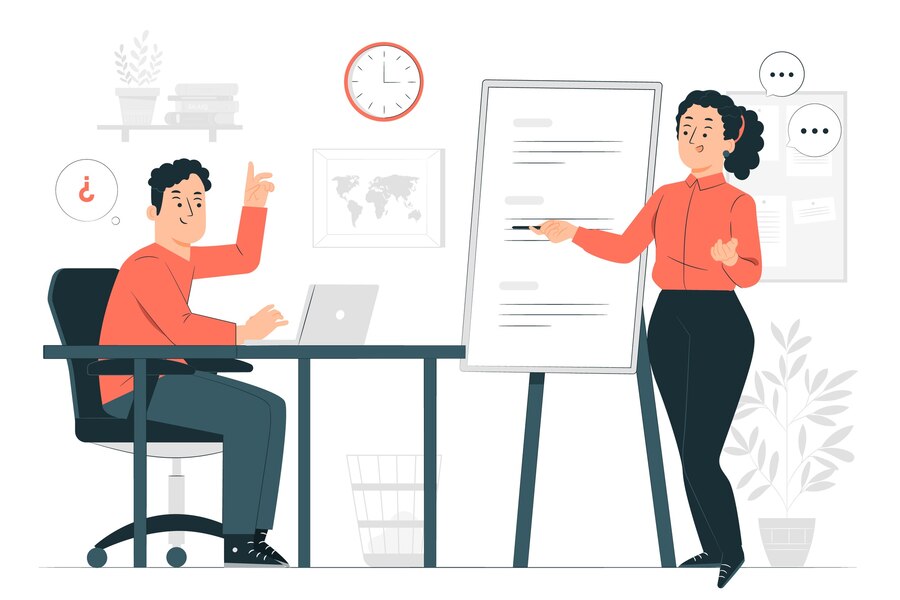Embarking on a job interview can be a nerve-wracking experience, but with the right strategies, you can boost your confidence and navigate the process successfully. This guide explores practical tips to help you overcome nervousness, presenting a range of techniques that can be applied both before and during job interviews. Whether you’re a recent graduate or a seasoned professional, these confidence boosters are designed to empower you to present your best self and secure that coveted job opportunity.
Understanding Pre-Interview Nervousness
Nervousness before a job interview is a common reaction and often stems from the desire to make a positive impression, coupled with the uncertainty of the outcome. Recognizing and addressing these feelings is the first step toward building confidence.
1. Preparation is Key
Tip: Thoroughly research the company and the role you’re interviewing for. Familiarize yourself with common interview questions and practice your responses. The more prepared you are, the more confident you’ll feel.
Example: Create a list of potential interview questions and craft thoughtful responses. Practice with a friend or in front of a mirror to refine your answers and ensure you can articulate your qualifications effectively.
2. Dress for Success
Tip: Choose an outfit that aligns with the company’s dress code and makes you feel confident. Feeling well-groomed and professionally dressed can positively impact your self-assurance.
Example: Select an outfit the night before to avoid last-minute stress. Ensure it is clean, well-fitted, and suitable for the company culture. Dressing in a way that reflects your professionalism can enhance your confidence.
3. Positive Visualization
Tip: Visualize yourself succeeding in the interview. Picture confidently answering questions, engaging with the interviewer, and leaving a positive impression. Visualization can help create a positive mindset.
Example: Close your eyes and imagine entering the interview room with a confident stride, engaging in meaningful conversation, and receiving positive feedback. Rehearse this mental scenario to build a sense of familiarity and comfort.
4. Control Your Breathing
Tip: Practice deep breathing exercises to calm your nerves. Focus on slow, controlled breaths to center yourself and reduce anxiety.
Example: Before the interview, take a few moments to inhale deeply through your nose, hold for a few seconds, and exhale slowly through your mouth. Repeat this process to calm your nervous system and promote relaxation.
5. Arrive Early
Tip: Plan to arrive at the interview location early. This not only demonstrates punctuality but also gives you time to collect your thoughts, review your notes, and acclimate to the environment.
Example: Calculate the travel time to the interview venue, allowing for potential delays. Arriving early provides a buffer and allows you to compose yourself before the interview begins.
Navigating Nervousness During the Interview
Once the interview starts, it’s natural to experience continued nervousness. Employing strategies to manage these feelings in real-time can significantly impact your overall performance.
6. Establish a Positive Mindset
Tip: Remind yourself of your qualifications and the value you bring to the role. Focus on the opportunity to showcase your skills rather than dwelling on potential challenges.
Example: Silence self-doubt by affirming your abilities. Remind yourself of your accomplishments and the unique strengths you possess that make you an excellent candidate for the position.
7. Maintain Eye Contact
Tip: Establishing and maintaining eye contact conveys confidence and sincerity. Engaging visually with the interviewer fosters a connection and helps you appear more composed.
Example: During the interview, make a conscious effort to maintain eye contact while listening and responding to questions. It not only demonstrates confidence but also portrays active engagement.
8. Embrace Positive Body Language
Tip: Adopt open and confident body language. Avoid fidgeting, crossing your arms, or slouching. Consciously project an image of self-assurance through your posture and gestures.
Example: Sit up straight with your shoulders back, and keep your hands comfortably resting on the table or in your lap. Open body language communicates confidence and professionalism.
9. Turn Nervous Energy into Enthusiasm
Tip: Instead of suppressing nervous energy, channel it into enthusiasm for the opportunity. Let your passion for the role shine through, and use the energy to express your genuine interest.
Example: Convert nervous energy into positive enthusiasm by expressing your excitement about the position. Share how your skills align with the job requirements and your eagerness to contribute to the team.
10. Be Authentic
Tip: Embrace your authentic self during the interview. Don’t strive for perfection; instead, focus on being genuine and transparent. Authenticity resonates positively with interviewers.
Example: When answering questions, share real-life examples from your experiences. Be honest about your strengths and areas for growth. Authenticity builds trust and enhances your overall credibility.
Real-World Application: Navigating Nervousness in Action
Let’s explore how these strategies can be applied in a real-world interview scenario:
Scenario: Responding to a Challenging Question
Challenge: The interviewer asks about a gap in your employment history.
Application of Strategies:
- Positive Mindset: Acknowledge the gap confidently, emphasizing the skills and experiences gained during that time.
- Eye Contact: Maintain eye contact to convey sincerity and openness.
- Authenticity: Be honest about the reason for the gap while highlighting how it contributed to your personal and professional growth.
Frequently Asked Questions (FAQs) about Overcoming Nervousness in Job Interviews
11. Is it okay to admit nervousness during an interview?
Yes, it’s perfectly acceptable to acknowledge nerves. You can say something like, “I’m excited about this opportunity, and it’s normal to feel a bit nervous. It shows how much I value the chance to discuss my qualifications with you.”
12. How can I handle unexpected questions that catch me off guard?
Take a moment to pause and collect your thoughts before responding. It’s okay to ask for clarification or to take a moment to think. Responding thoughtfully is more important than rushing an answer.
13. What if my mind goes blank during the interview?
If your mind goes blank, take a deep breath and ask for a moment to gather your thoughts. You can also revisit the question and break it down into smaller components to guide your response.
Conclusion: Mastering Nervousness for Interview Success
Navigating job interviews with confidence is an achievable goal, and the strategies outlined in this guide are designed to empower you throughout the process. By preparing thoroughly, adopting positive mindset practices, and leveraging real-time techniques during the interview, you can overcome nervousness and present your best self to potential employers. Remember, interviews are not only an opportunity for employers to assess you but also a chance for you to evaluate whether the company aligns with your professional goals. With these confidence boosters in your toolkit, you can approach interviews with self-assurance and increase your chances of securing the job you desire.




